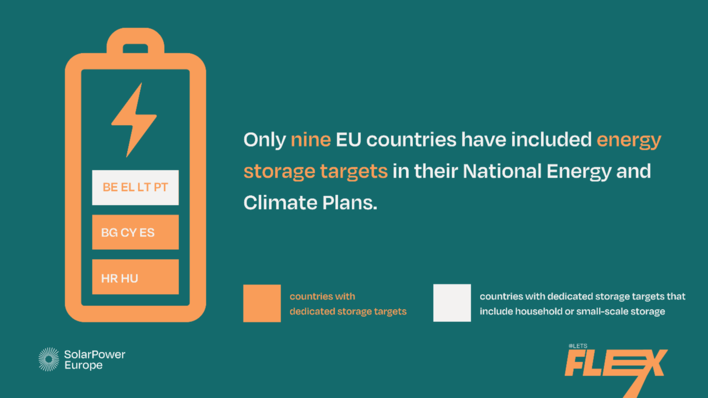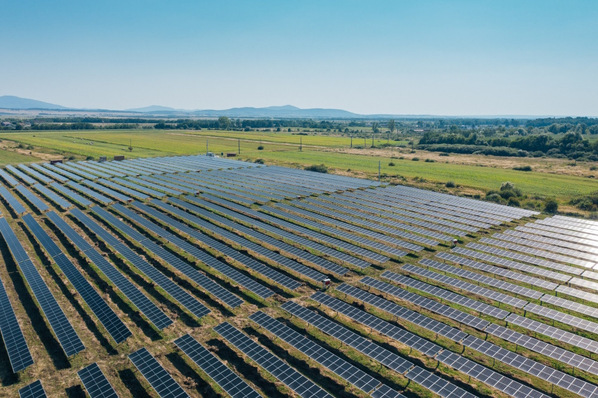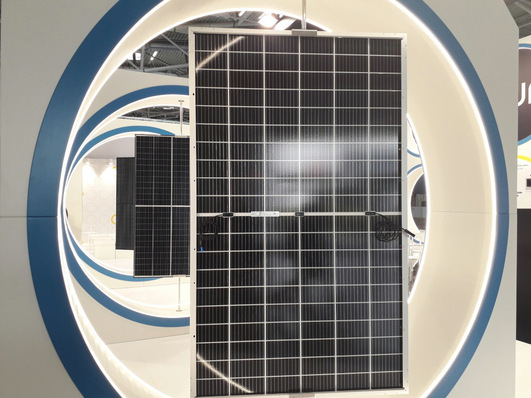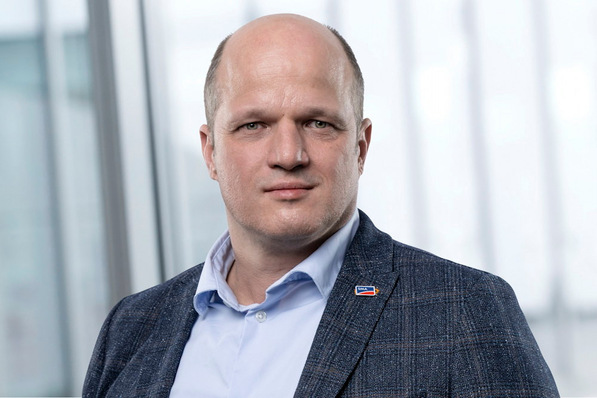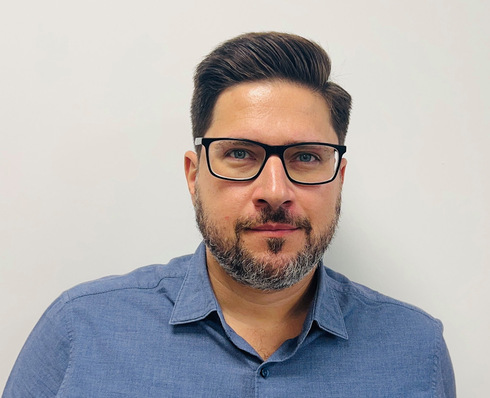Sungrow now offers much more than inverters. Are you becoming more and more of a system provider?
Yes, we have greatly differentiated and technologically developed our product range in recent years and are increasingly focusing on complete systems. On the one hand, we offer inverters in all size classes, from 2 kW to our new modular central inverter with a maximum capacity of 8.8 MW, in the storage segment a water-cooled DC-DC converter storage inverter with 2.7 MWh that can be expanded modularly to over 5 MWh. Plus batteries in all size classes, smart meters, EV chargers, and monitoring and energy management systems that we develop and manufacture ourselves. And we also have our own department for floating PV, for example, and manufacture floating pontoons ourselves.
That's exciting because floating pontoons have nothing directly to do with electronics or inverters?
Yes, that's true, but we have our own large development department and are constantly researching new products and applications, we are already quite diversified. Currently Sungrow is researching intensively on Green Hydrogen, there will soon be products for the interface from the solar system to the electrolyzer. Ultimately, an electrolyzer is also a storage medium, like a battery. And we already have the experience for interfaces to batteries.
Do you plan to launch new products in this area this year?
I don't think quite so quickly, but we plan to offer the first products during the course of next year.
In the EV charging area, do you also offer solutions for bidirectional charging?
Actually, we do offer that, but it is not yet permitted in many countries, at least not in Germany. And not all EV cars are yet designed for bidirectional charging.
There is an increasing trend toward using second-life batteries for battery storage. Do you have this in your product portfolio?
At the moment, we don't offer that yet.
Are you actually affected by supply chain issues?
We are already affected, but we are not in a situation where we cannot deliver. That certainly has something to do with the size of Sungrow. After all, we delivered 47 GW worldwide last year, as the world's largest inverter manufacturer, so we also have quite good purchasing power. We have components in stock, we can produce and there are corresponding devices.
How is Sungrow managing the recent shipping and logistics challenges from China to Europe?
As always you have to stay flexible and find new ways. Next to using different departure ports in China to find the quickest route for our products to Europe, Sungrow is now also increasingly using train transport from China via the New Silk Road directly to Germany. Even though the current situation in Ukraine and Russia is now also making this means of transport more difficult to use. Despite some minor delays, so far we have also managed this challenge quite well.
Are cost increases causing you problems?
The costs have also increased for us, the prices have gone up, that was also the case last year. Last year, we didn't pass on price adaptation in order to keep everything stable. This year we had to adjust some of our prices, but it is still within limits. But prices aren't what's bothering customers the most at the moment. The first thing is always the question of whether we can deliver; prices usually come second or third. In addition, yes, electricity prices are also increasing and higher prices are also being paid for PPAs, which more than offsets the increase in component prices.

Sungrow
As a Chinese manufacturer, how do you actually view the current discussion about supply chain diversification and imports, as well as a renaissance of PV production in Europe? How do you deal with this?
The topic of local production is one that we are looking at. Although it is still at a very early stage, there could well be the possibility that we will also manufacture in Europe in the future; that is not out of the question. This is less about politics and more about supply chain security and being closer to the partners, to the suppliers, to the customers. Sungrow also has many suppliers in Europe. And Europe is one of the most important markets for Sungrow globally. Europe is a very developed solar market, a very structured, stable solar market and that will probably remain one of the most important solar markets globally for the next decades. In any case, the topic of bringing the industry back to Europe is there. At the moment, this is mostly about cell and module production. But we are certainly looking at the issue.
Is Sungrow already producing on a larger scale outside China?
Most of our production capacity is still in China. But we have a factory in India, where there were local content requirements a few years ago, which led to us setting up a production facility there. And we actually have good experience with this factory in India. In this respect, it would not be anything fundamentally new for Sungrow if we were to take production to Europe in the future, but rather a further step.
Recently, there has been an increase in news of production and capacity expansions by numerous companies. What are your plans in this respect?
We are quite flexible in this respect. At present, we have an annual production capacity of 145 GW, 25 GW of which is outside China. For now, this capacity is enough for us, with 47 GW delivered last year. But if necessary, we have the ability to expand our capacity even further.
A whole series of PV manufacturers are currently focusing more on the topic of "green production" and sustainability. How do you see this and what is Sungrow doing in this area?
Sungrow is involved in the RE100 initiative, which means that we have set ourselves the goal of producing 100 per cent with renewable energies by 2028. And we are also active in several other similar initiatives to reduce our carbon footprint and are member of EP100 with the goal to optimize our energy productivity. We've also summarised this in great detail in our Sustainability Report, and we're also committed to the UN's 17 Sustainable Development Goals. In this area, Sungrow is already very far along.
Is this a topic that also interests customers and investors?
Yes, it is. We're seeing a lot of interest from large institutional investors, especially from the Anglo-American sector, but also increasingly in Germany, Italy and Spain. There are also more and more tenders where such aspects are increasingly being asked for. In any case, Sungrow does not have to hide in comparison to European manufacturers.
The interview was conducted by Hans-Christoph Neidlein
Did you miss that? A large string inverter compatible with bifacial solar modules


